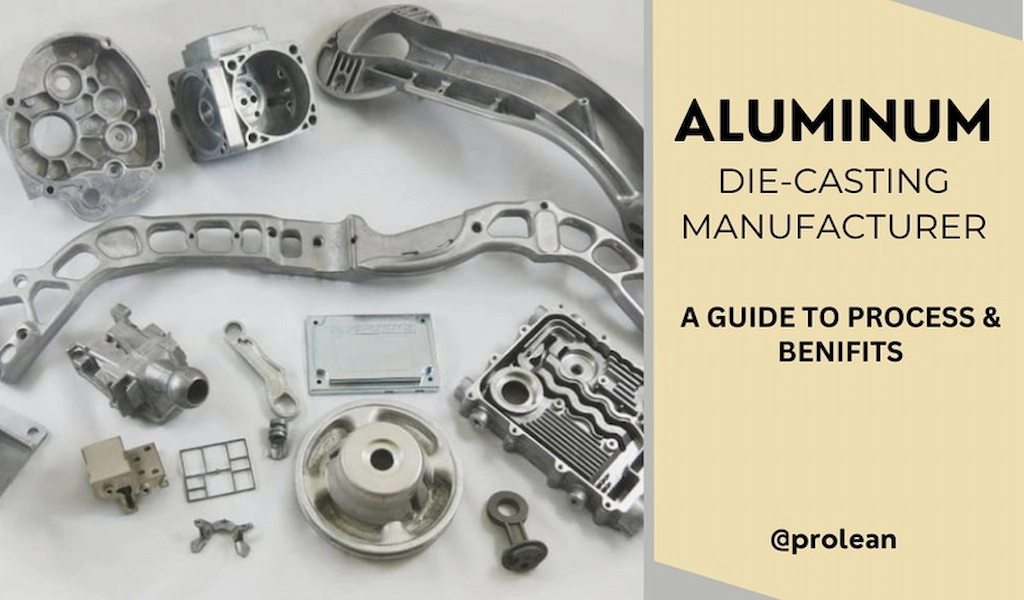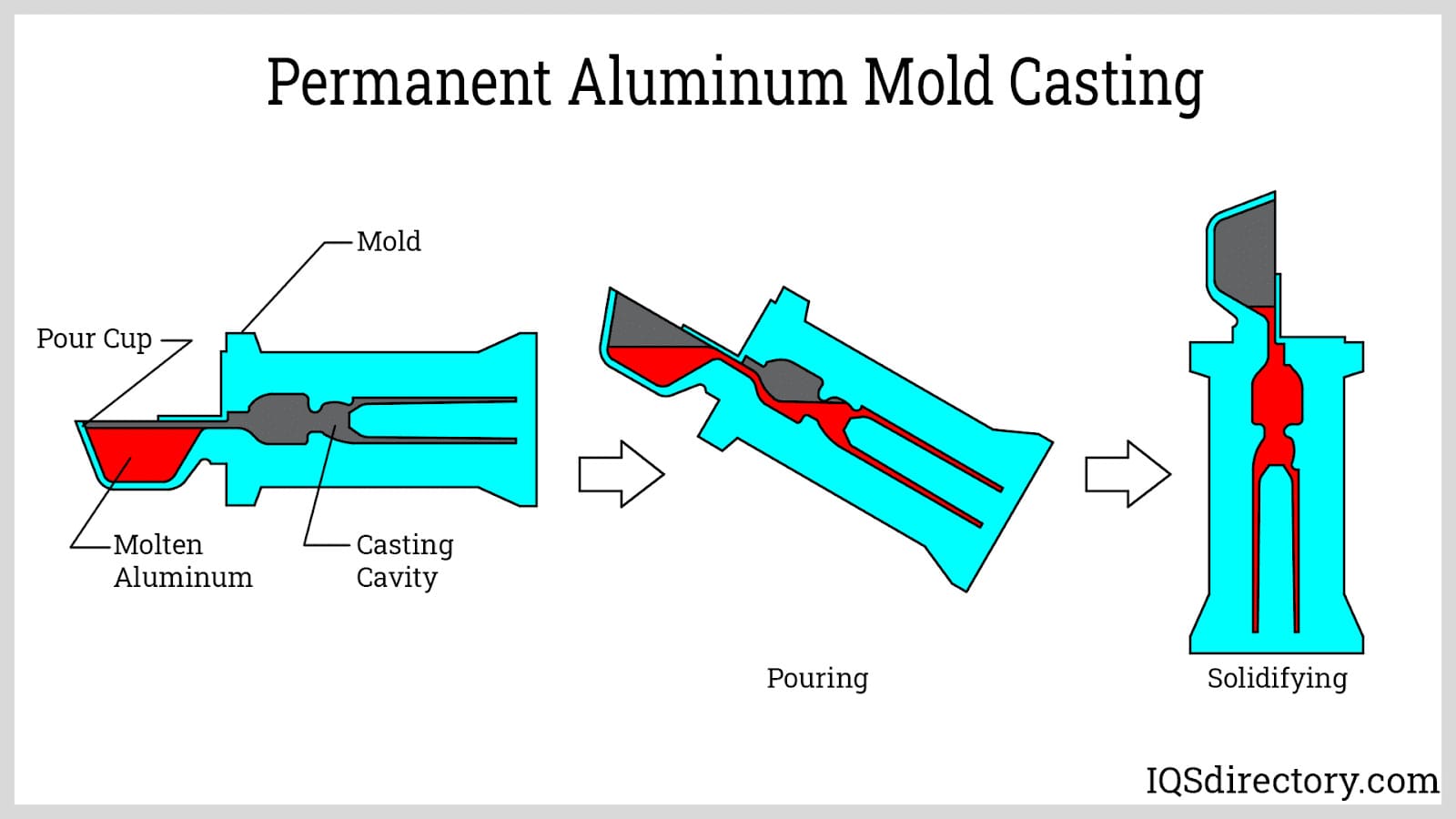Why partnering with Wisconsin Aluminum Foundry guarantees durability
Wiki Article
Recognizing the Function of Aluminum Foundry in Creating High-Quality Steel Products
Aluminum shops are crucial in the production of high-quality steel products. They employ different casting methods, such as sand and die spreading, to achieve accuracy and longevity. With rigorous quality assurance procedures in position, these facilities assure that their products fulfill market standards. As markets advance, the function of Aluminum foundries proceeds to adjust. This questions regarding future advancements and sustainability techniques that may redefine their influence.The Aluminum Spreading Process: Methods and Advancements
The Aluminum spreading process has progressed substantially, including various methods and technologies that improve efficiency and item top quality. Commonly, methods such as sand casting and pass away spreading were predominant; however, advancements have presented procedures like investment spreading and low-pressure die spreading. These innovations make it possible for makers to attain intricate layouts and tighter tolerances, decreasing product waste and enhancing total efficiency.Furthermore, the combination of computer-aided layout (CAD) and simulation software program permits even more accurate modeling and screening, guaranteeing that potential issues are recognized early in the manufacturing cycle. Additionally, developments in alloy formulations cause improved mechanical homes and deterioration resistance
These growths not only enhance production but also promote sustainability by lessening energy usage and exhausts. As the market continues to welcome brand-new innovations, the Aluminum spreading procedure remains a crucial component in generating high-quality metal items that satisfy varied market needs.
Applications of Aluminum in Numerous Industries
Light weight aluminum's convenience and beneficial properties make it a useful product across numerous industries. In the automobile sector, Aluminum is extensively utilized for its light-weight attributes, adding to improved gas effectiveness and performance. The aerospace market likewise benefits, as light weight aluminum's high strength-to-weight ratio improves airplane style while preserving safety criteria.In building and construction, Aluminum is preferred for its toughness and resistance to rust, making it ideal for home window frameworks, roof covering, and architectural elements. The packaging industry leverages aluminum's safe nature and recyclability, particularly in food and beverage containers, ensuring safety and security and sustainability.
In addition, the electric sector utilizes Aluminum for its superb conductivity in circuitry and transmission lines. The durable goods industry utilizes Aluminum in products varying from cooking area tools to electronics, highlighting its adaptability. Aluminum plays a crucial role in enhancing capability, effectiveness, and sustainability throughout varied applications.
Benefits of Utilizing Aluminum Over Various Other Steels
While numerous steels are employed in various applications, Aluminum sticks out due to its unique combination of homes that use several advantages over other materials. Its light-weight nature considerably decreases transport costs and power intake, making it perfect for sectors such as vehicle and aerospace. Aluminum's superb rust resistance boosts sturdiness, expanding the life of items and reducing upkeep needs. In addition, it shows high thermal and electric conductivity, making it ideal for electrical and thermal management applications.The metal's pliability allows for complex styles and complicated forms, giving flexibility in making processes. Additionally, Aluminum is 100% recyclable without loss of top quality, promoting sustainability and reducing environmental influence. Aluminum Foundry. These attributes, combined with its fairly reduced price compared to various other metals, setting Aluminum as a recommended option across numerous fields. Overall, the advantages of Aluminum add to its increasing appeal in the manufacturing of high-quality metal products

Quality Control Actions in Aluminum Foundries
Quality control procedures play an essential duty in the Aluminum Foundry process, ensuring that the final products fulfill rigorous important source industry standards and consumer assumptions. These measures usually begin with material assessment, where raw Aluminum is examined for purity and structure. When the casting process begins, temperature level control is important; preserving excellent molten metal temperatures prevents defects such as porosity and shrinking.Additionally, non-destructive testing (NDT) strategies, including radiographic and ultrasonic assessments, are employed to identify internal problems without harming the castings. Aesthetic examinations are also conducted at different phases to recognize surface area blemishes.
Additionally, adherence to recognized top quality administration systems, such as ISO requirements, is crucial for maintaining consistency and traceability throughout the manufacturing process. Routine audits and worker training on quality standards add to a total society of excellence, making certain that the products not just surpass but fulfill customer assumptions in efficiency and longevity.
The Future of Aluminum Foundries: Patterns and Sustainability
As the Aluminum Foundry sector develops, emerging patterns and a focus on sustainability are improving its landscape. Increasing demand for durable and lightweight materials in sectors like auto and aerospace drives technology in Aluminum casting methods. Advanced technologies, such as expert system and automation, are improving manufacturing performance and accuracy while reducing waste.Sustainability is becoming a vital problem, motivating shops to apply environment-friendly practices, consisting of recycling Aluminum scrap and useful reference making use of renewable power sources. The shift towards circular economy principles encourages shops to minimize environmental impact while satisfying customer assumptions for sustainable items.
Additionally, regulative pressures are pressing the market in the direction of cleaner procedures, fostering cooperation in between suppliers and ecological companies. As these patterns merge, the future of Aluminum foundries will likely be characterized by a commitment to top quality, efficiency, and sustainability, ensuring their significance in a competitive market.
Often Asked Inquiries
What Are the Environmental Effects of Aluminum Foundries?
Aluminum factories contribute to environmental influences with energy consumption, greenhouse gas exhausts, and prospective air and water pollution. Additionally, mining bauxite for Aluminum can bring about environment devastation and dirt destruction, affecting regional ecological communities.

How Do Factories Make Sure Worker Safety During Production?
Shops carry out strenuous safety procedures, including safety tools, ventilation systems, and regular training. They conduct threat assessments and maintain security requirements to reduce risks, ensuring a more secure working setting for employees throughout the manufacturing procedure.What Certifications Should a Light Weight Aluminum Foundry Have?
A light weight aluminum Foundry should have qualifications such as ISO 9001 for top quality monitoring, ISO 14001 for ecological administration, and OSHA compliance for safety criteria. These qualifications ensure adherence to industry guidelines and dedication to top quality and security techniques.Exactly How Does Aluminum Recycling Affect Foundry Operations?
Aluminum recycling greatly enhances Foundry procedures by supplying a cost-effective raw material resource, reducing energy intake, and decreasing environmental influence - Metal Castings. It additionally encourages sustainable practices, allowing shops to maintain competitiveness in a quickly advancing marketWhat Prevail Defects in Aluminum Castings?
Usual issues in Aluminum spreadings consist of porosity, contraction, incorporations, and surface area flaws. These concerns can occur from improper mold and mildew design, inadequate putting techniques, or contamination during the melting and casting processes, impacting total product top quality.
Report this wiki page